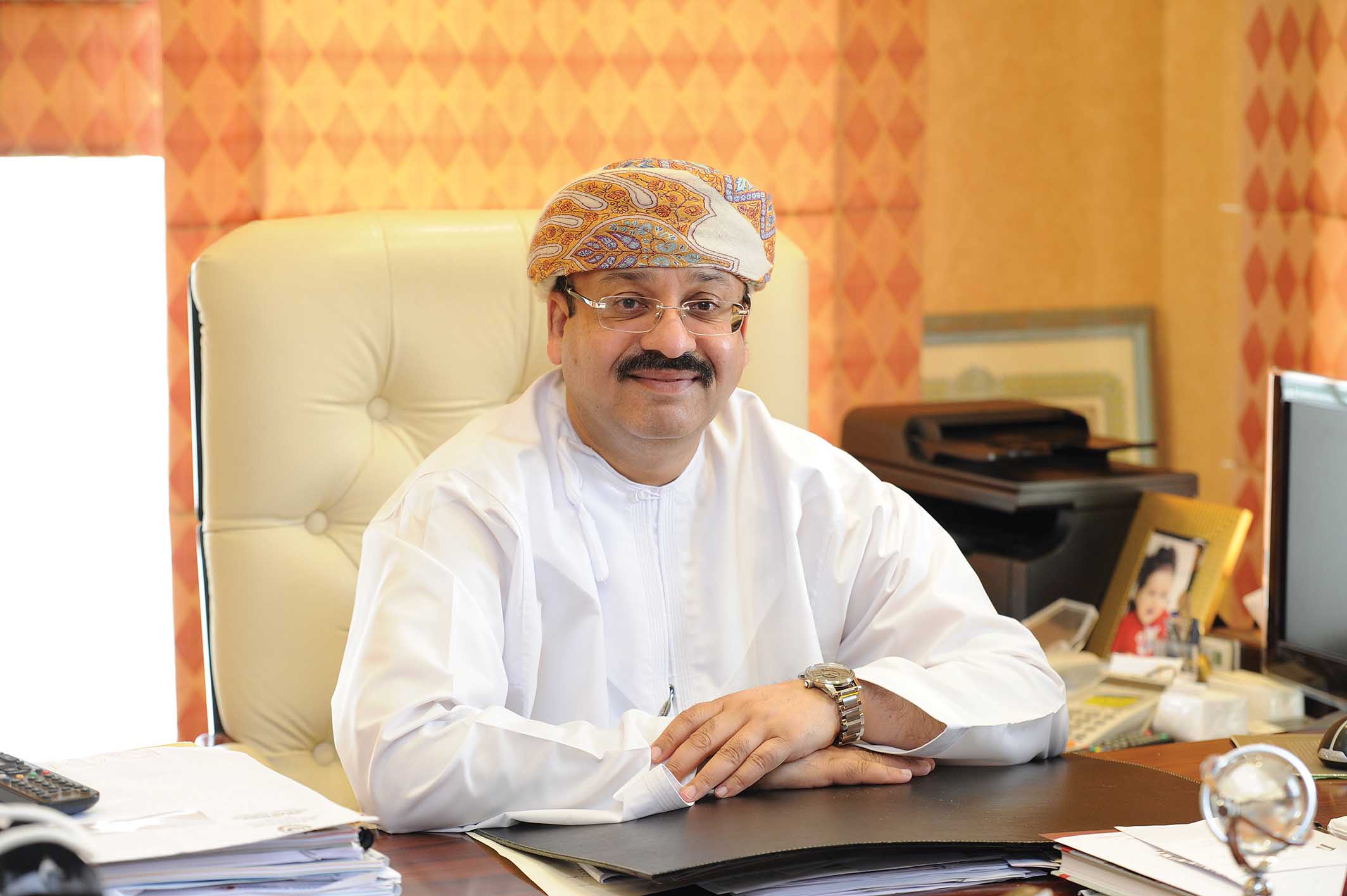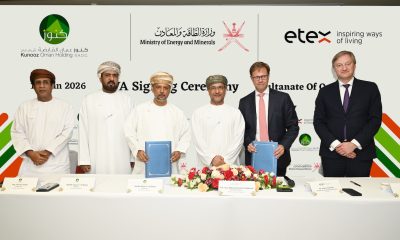Highlights
Low entry barrier

Prevailing market conditions present a good opportunity for investors looking for value over a period of time
On January 20, 2016 t he US oil benchmark – West Texas Intermediate (WTI), fell to $26.55 per barrel, the lowest level since 2003. The historic low had a ripple effect across stock markets in oil producing countries, with the Muscat Securities Market (MSM) plunging to 4,890, the lowest since 2009. Uncertain about the prospect of oil, panic-stricken investors offloaded positions in a hurry. While the MSM has recovered sharply, hitting 5,978 on May 10, 2016, trepidation about investing still persists. The question rankling investors is – How does one make money in an uncertain market?
 Mustafa Ahmed Salman, chairman and CEO, United Securities says, “Things are not clear in our region. Luckily till now, the GCC economies have been in a good condition and we have not seen much of an impact on the market, but it will come. Given the scenario, it is important to have a balanced and diversified portfolio. Investors should focus on high beta companies, as well as the bond market, as it looks attractive right now. Interest rates are going up and there are sukuks and bonds which are giving good returns, apart from being liquid and safe.”
Mustafa Ahmed Salman, chairman and CEO, United Securities says, “Things are not clear in our region. Luckily till now, the GCC economies have been in a good condition and we have not seen much of an impact on the market, but it will come. Given the scenario, it is important to have a balanced and diversified portfolio. Investors should focus on high beta companies, as well as the bond market, as it looks attractive right now. Interest rates are going up and there are sukuks and bonds which are giving good returns, apart from being liquid and safe.”
Bank Muscat offers a 4.50 per cent interest per annum on a fixed deposit of six years. In April 2016, Bank Nizwa announced a profit return of 2.1 per cent on a one-year tenor for depositors availing of its Mudaraba Investment Account. “One should look at the money market as a very short term investment; fixed deposits are a medium term investment, while equities are a long term investment,” says Kanaga Sundar, assistant vice president – research, Gulf Baader Capital Markets (GBCM).
Value investing
There is broad unanimity amongst analysts that despite the sharp rise in the MSM, there is still room to make money on the market as there are companies which offer good valuation. For example, Al Anwar Holding is trading at a price-to-book ratio (P/BR) of 1.2, Bank Muscat’s P/BR is 0.7, while National Bank of Oman and Oman United Insurance have a P/BR of 1. These and other such stocks offer good value for investors. Says Nandakumar Chenicheri, portfolio manager – asset management, Fincorp, “It is a good time to enter the market as there are a number of stocks which are trading below their book value, and this gap will narrow as these companies move close or above their book value. Overall, investors should look at a one-to-two- year time horizon, from here.”
Joice Mathew, head of research, United Securities adds, “The market came down so drastically that people panicked, and the market went to unreasonably low levels; since then there has been a pick up this year, and the market always offers value for investors.”
So how does one go about investing in the market? “Broadly, there are three major asset classes excluding real estate and commodities – equities, debt or fixed deposits and money market instruments and a proper asset allocation is important for anyone looking at creating long term wealth,” says Sundar. Fixed income instruments give nominal returns, but over the years they may not beat inflation. As an asset class, equities have outperformed others and hence they need to be a substantial part of an investor’s portfolio. For someone in the 30s, almost 50-60 per cent of their investible income should be in equities, 20 per cent in fixed income and the rest in real estate and commodities. As one’s risk appetite goes down with age, investors can taper some of their equity investment. For example, at the age of 50 one can reduce equity exposure in one’s portfolio to 30 per cent, while the fixed income allocation can go upto 40-50 per cent, with the rest being in real estate and commodities.
The other prerequisite is to look at value investing, by picking fundamentally strong stocks from across sectors, as this adds diversification to a portfolio. Says Mustafa, “The time to concentrate on a single market has gone and investors should have a diversified portfolio with stocks from different GCC markets.” Analysts are bullish on a number of markets in the region. Says Chenicheri, “We are positive on Dubai and Qatar. Dubai expects the contribution of oil to go down to seven per cent in a few years. Expo 2020 will drive tourism and Emirates, its airline, is doing well. And if you add real estate it is a well-diversified economy. Qatar should do well, thanks to its natural gas reserves and the 2022 FIFA World Cup.” Market analysts are keeping a keen eye on Saudi Arabia, as the country goes through a process of economic change. The expected listing of Saudi Aramco, news about the privatisation of state-owned companies and regulatory changes like reducing the minimum capital requirement for foreign funds, investing on the country’s stock exchange from $5bn to $1bn, augur well for its economy. If the Morgan Stanley’s, MSCI emerging market index includes Saudi Arabia, it will help in attracting additional investments into the country.
Mustafa recommends certain sectors in Oman that look promising, “The insurance sector is a good bet, while valuations in the banking sector are very good. In Islamic Banking, if one holds onto a scrip for three years, investors can make very good returns as their business model is changing and cash profits are expected over this period. A growing population bodes well for healthcare and low oil prices is a shot in the arm for aviation.”
Professionals at work
For investors who do not have the time or inclination to enter the markets directly, mutual funds offer a good option as professional managers bring in experience and insight. Investors can pick from a range of mutual funds in the market like Vision Emerging GCC Fund, Vision Emerging Oman Fund, Muscat Fund, First Mazoon Fund, Fincorp Al Amal Fund etc. “During difficult times, mutual funds carry little risk. Recently, we have seen even pension funds transferring investments to mutual funds in the region. One can pick funds whose returns are close to the index,” says Mustafa.
Overall, the biggest determinant of where the markets are headed is going to be oil prices. There is a broad consensus that oil will trade in the $40-$55 per barrel range during 2016, based on fundamentals. Presently, there is a certain nervousness in the market due to the global uncertainty in the wake of the Brexit poll on June 22, signs of an imminent US Federal Reserve interest rate hike and the OPEC meet on June 2, 2016. Couple these with low activity during the month of Ramadan, and a correction looks imminent. Says Sundar, “There may be small correction, which will be good as the markets have moved up quite strongly. There will be a consolidation in the next three months and then it will set the momentum for the remaining part of the year.”
Economic principles dictate that prices of various asset classes are inversely correlated as investors shift money between competing choices. So if stock markets went down, the bond market went up, the same held true for oil and gold. But in the last few years different asset classes have started betraying similar propensities, and we see stock markets and bonds, oil and gold moving in the same direction. Says Mustafa, “Every asset class seems to have become speculative in nature. Thus, somewhere economic principles are not working properly.” Despite such uncertainties, there are certain time-tested investment principles that still hold true – invest systematically over a period of time in real value assets for good returns.
GCC – Equity Market Monitor
| Oman | Saudi | UAE (DFM) | UAE (Abu Dhabi) | Kuwait = PI | Kuwait – Wtd | Qatar | Bahrain | |
| Daily Return | -0.4% | -0.8% | 0.3% | 0.3% | -0.1% | -0.2% | -0.4% | -0.6% |
| YTD Return | 9.0% | -7.0% | 6.6% | -0.2% | -4.0% | -6.5% | -7.2% | -10.2% |
| MTD Return | -0.9% | -5.5% | -3.8% | -5.4% | 0.0% | -2.6% | -5.0% | -1.7% |
| QTD Return | 7.7% | 3.4% | 0.1% | -2.1% | 3.1% | -0.8% | -6.8% | -3.5% |
*As on May 30, 2016
Source: Respective Stock Markets, Bloomberg, GBCM Research
-

 News2 months ago
News2 months agoAI Security Conference 2025 Hosted by Securado Highlights the Changing Cybersecurity Landscape
-

 Insurance2 months ago
Insurance2 months agoSupporting Community Wellness: Liva Insurance Sponsors Muscat Marathon 2026 with Free Health Checkups
-

 Interviews1 month ago
Interviews1 month agoEXCLUSIVE INTERVIEW: TLS Rebranding Marks Strategic Leap Toward Innovation, Sustainability & Growth
-

 Insurance1 month ago
Insurance1 month agoLiva Insurance Supports Community Wellness Through “Experience Oman – Muscat Marathon 2026”
-

 Investment3 weeks ago
Investment3 weeks agoLalan Inaugurates Its First Overseas Manufacturing Facility, Marking Sri Lanka’s First Investment in SOHAR Freezone
-

 Banking & Finance1 month ago
Banking & Finance1 month agoA New Platform for SME Growth: Oman Arab Bank Unveils Tumouhi
-

 Construction4 weeks ago
Construction4 weeks agoInternational Heavy Equipment hosts Open Day at its Refurbished Facility in Sohar Industrial Area
-

 News3 weeks ago
News3 weeks agoKunooz Oman Holding Partners with Belgian company Etex for Local Gypsum-Based Business Development






























You must be logged in to post a comment Login